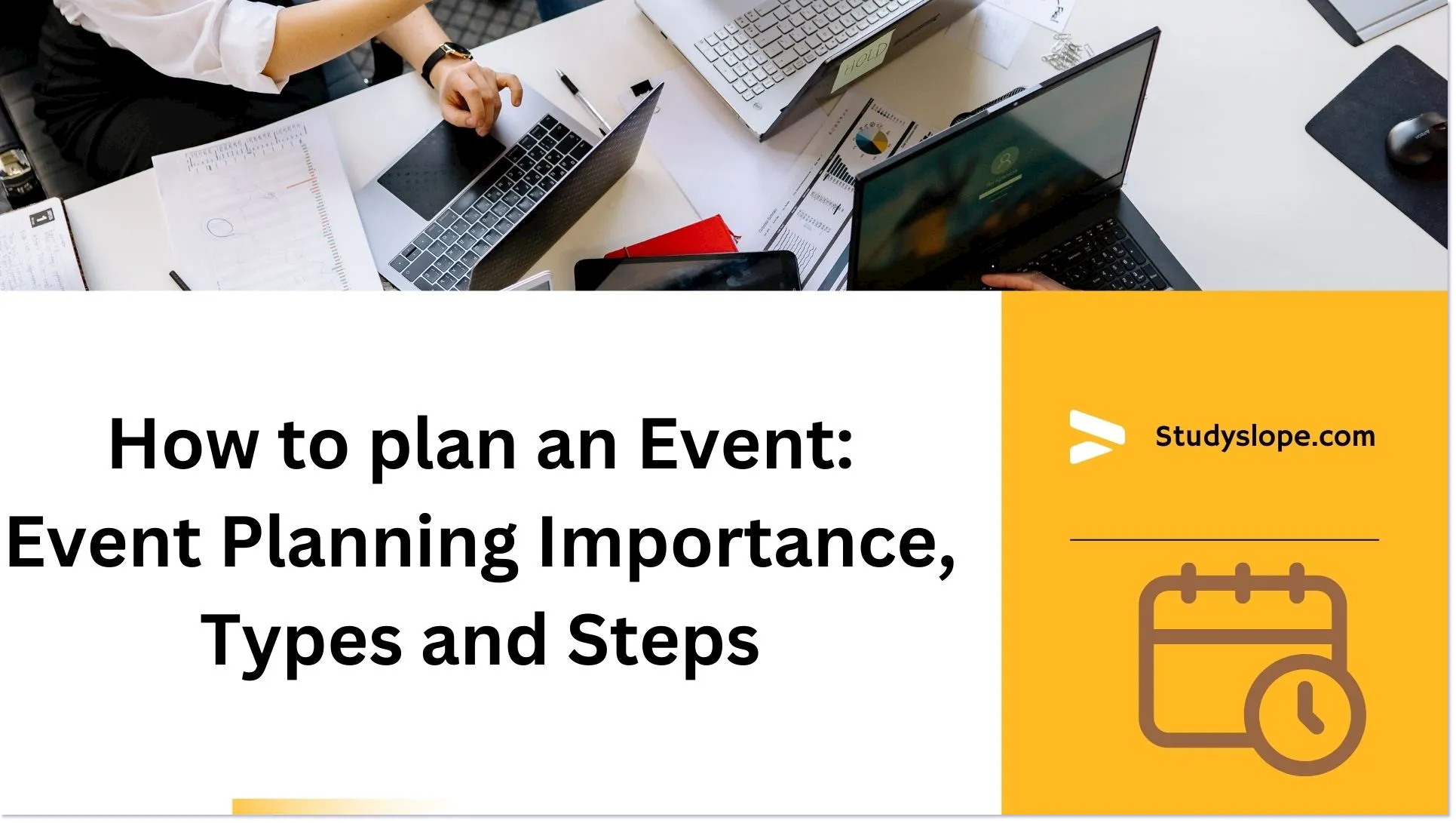Table of Contents
What is Event Planning?
Event planning is the process of carefully organising and carrying out a meeting, like a business conference, a wedding, a trade show, or a community get-together. It includes many tasks, from planning the idea to reviewing it after the event, with the aim of giving guests a memorable and satisfying experience.
What is an Event Plan?
An event plan is a detailed document that lists all the steps and tasks needed to organise and carry out an event. It tells event managers what parts, when they need to be done, who is responsible for what, and what resources are needed to make sure the event goes well.
The goal of an event plan is to provide a structured and organised way to handle the many aspects of planning and hosting an event, such as a business meeting, wedding, concert, trade show, or any other kind of gathering.
Importance of Effective Event Planning:
Effective event planning is very important and can’t be stressed enough. It’s not only a well-run event that makes a lasting impression on attendees, but it also helps reach certain goals. Planning carefully makes sure that every part of the event fits with its main goal, whether it’s for networking, celebrating, teaching, or advertising.
Different types of events and their goals:
Various types of events each have their own purpose. To customise the planning process and achieve the desired results, it is important to know the different types of events and their specific goals.
Corporate Events:
Objectives: Networking, team building, product launch, and brand promotion.
Social Events (Weddings, Parties):
Objectives: Celebration, creating memorable experiences, and fostering social connections.
Educational Events (Conferences, Seminars):
Objectives: Knowledge sharing, skill development, and professional networking.
Community Events:
Objectives: Bringing people together, promoting local initiatives, and building a sense of community.
Nonprofit Events (Fundraisers, Charity):
Objectives: Raising funds, increasing awareness, and garnering support for a cause.
7 Event Planning Steps
A systematic and strategic method is needed to organize an event that goes well. Here are 7 important steps you need to take to plan an event:
Define Event Objectives: Write down your event’s goals and aims in a clear way. Knowing the goal will help you make decisions about planning and figure out how well you did.
Set a Realistic Budget: Make a budget that covers everything about the event, from the place and food to the marketing and the logistics. Financial success depends on sticking to your budget.
Form an Event Planning Team: Put together a dedicated group of people whose jobs and responsibilities are clear. Teamwork is very important for getting all the tasks that come with having an event done.
Pick a date and place: Choose a date and location that work for the event’s goals and the number of people you expect to attend. Think about how to get to the chosen spot, how easy it is to get to, and how the place feels in general.
Make a Detailed Timeline: Make a detailed timeline that includes actions that happen before, during, and after the event. This schedule will be used as a guide for the whole planning process.
Coordinate Logistics: Take care of things like transportation, lodging, food, and technology needs that have to do with logistics. If you pay attention to the details, the event will go off without a hitch.
Promote the event: Come up with a marketing plan to get people to come. To reach your target group, use a variety of methods, such as social media, email campaigns, and traditional ads.
Roles in Event Planning
In the intricate world of event planning, different roles contribute to the smooth execution of an event. Here are key roles and their responsibilities:
Event Planner/Coordinator: Oversees the planning of the whole event and makes sure that everyone shares information and completes tasks.
Venue Coordinator: This person is in charge of creating the perfect setting for the event by managing the venue’s logistics, contracts, and setup.
Logistics manager: is in charge of making sure that transportation, lodging, and other logistical issues run smoothly during the event.
Marketing specialist: Creates and uses marketing plans to get people to the event.
Catering Manager:Management of food details to make sure that guests have a great meal.
Technical Coordinator: Responsible for making sure that the event is visually interesting, the technical coordinator handles all of the audiovisual and technical needs.
Registration Coordinator: oversees the registration process and makes sure that check-in and material sharing go smoothly.
Entertainment Coordinator: Responsible for planning and coordinating the activities at events so that guests have a great time.
Sponsorship Coordinator: Secures sponsors, manages relationships, and plans activities linked to sponsors.
On-Site Coordinator: In this role, the on-site coordinator oversees activities and resolves problems to ensure the event runs smoothly.

